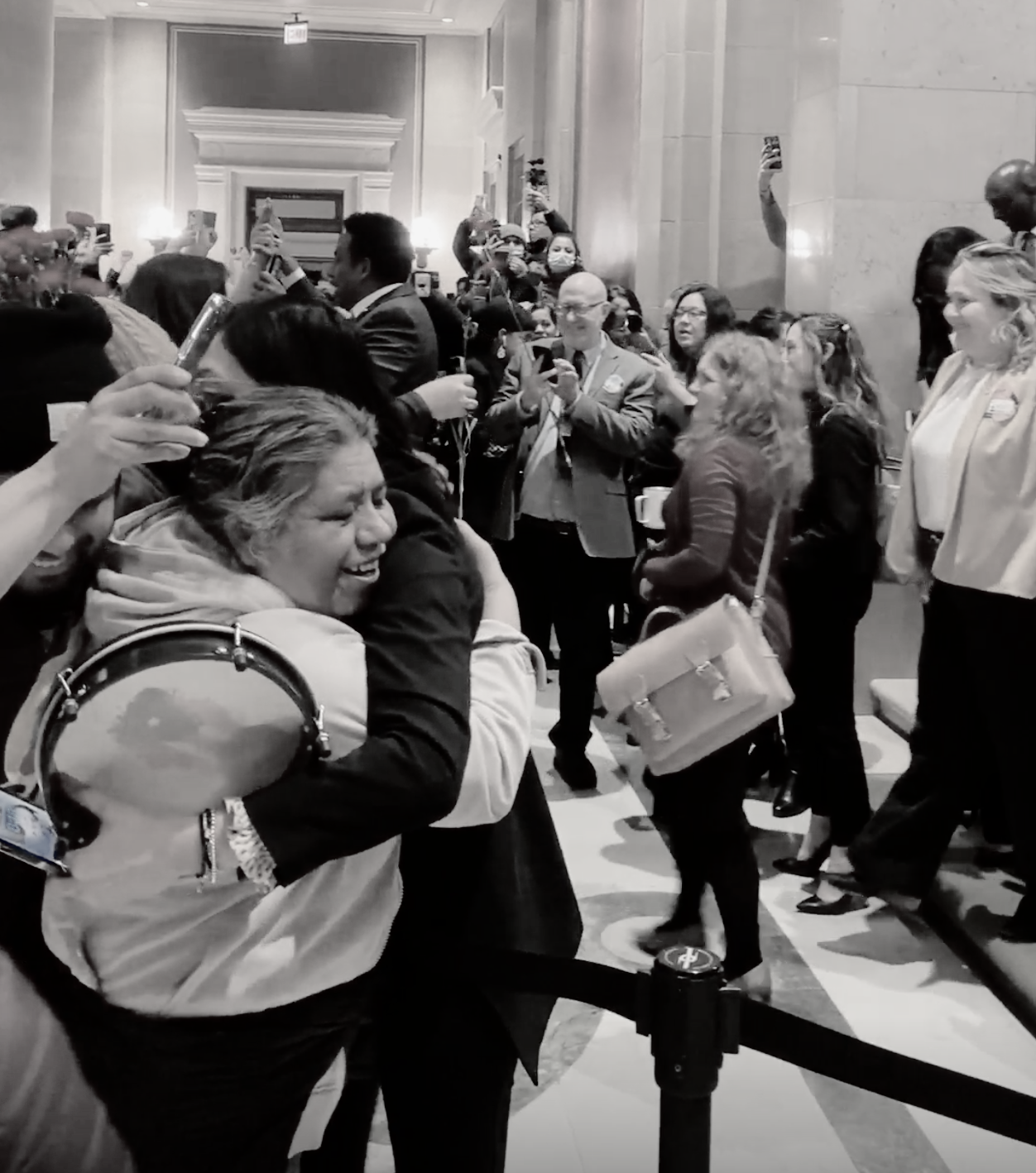For some, a right of passage. For others, it’s the opportunity to become an active member of American society.
by Isabella Silva-Biotti and Chris Alvarez
In America, getting a driver’s license at 16 is the pinnacle of freedom. Being licensed means traveling at your own will. It’s that trip a family takes up north to see the beautiful fall foliage. Or, that McDonald’s drive-thru run you take with your friends at two in the morning.
For others, it’s the ability to access healthcare. It’s a ride to work and how to become an active member of American society. It’s how you get a job or pick up your kids from school. It’s leaving for the day only to come back home safe.
A driver’s license is a right of passage, a privilege many documented citizens take for granted. But not for people like Regina Olono.
Driving undocumented means facing the possibility of being pulled over and detained, deported – or both. For Olono and her parents, driving equaled that fear every time. She wanted them to feel safe behind the wheel and today, at 23-years-old, she organizes Hennepin County at UNIDOS MN for the Driver’s Licenses for All campaign.
“I’ve always been really passionate about helping others,” Olono said. “I come from a background where if you didn’t have help from the community it would be hard to navigate places like going to school, or places to live.” It’s the stories from the people who’ve been working on this project for years that hits home and makes her want to help even more.
For 20 years, organizations like UNIDOS MN, Minnesota Immigrant Movement(MIM) and COPAL, have been fighting for immigrant communities in Minnesota to obtain their legal driver’s license. On Monday Jan. 30th, at around 8:30 p.m. the House voted 69-60 to approve the “Driver’s Licenses for All” (HF4) bill.
Earlier that afternoon, hundreds of community members gathered at the rotunda in the State Capitol to await the final vote. After hours of chanting, dancing, and eating delicious tacos, the House announced that the bill had passed to the senate. People screamed and hugged each other, erupted with excitement as their eyes welled up. This was one step closer to what they worked hard for these past 20 years.
Jovita Morales is an activist and one of the 10 women leaders in MIM that helped organize this bill. On Aug. 1 2007, when the 35W bridge collapsed, Morales received a call that her children were injured in the accident. As an undocumented Minnesotan, she was unable to
drive them to doctor and physical therapy appointments.
Immigrants not having access to a driver’s license began in 2003, when Gov. Tim Pawlently signed an executive order imposing the requisite of a social security number to obtain a license.
“Now a lot of families will be active in supporting their children and in exploring Minnesota,” Morales said as she broke into joyful tears. “I never had the opportunity of enjoying [my family] like I wanted but here I am. I believe that this generation is going to enjoy a little of everything that we haven’t been able to do.”
Before the final decision was made, members of the house gave speeches arguing in support or against the proposed bill. Olono was among the few individuals able to sit in on the house floor vote. She described how disheartening it was to hear why representatives oppose the bill. Olono said, “They just see immigrants as immigrants and don’t even care to hear their story.”
Representatives in support of HF4 explained the bill including Rep. Aisha Gomez (DFL-Mpls), one of the bill’s authors. Gomez explained that the bill would implement data protection practices to protect immigration statuses from being accessed by state agencies.
Additionally, representatives like Maria Isa Perez (DFL-Mpls), also a co-author, gave an impassioned speech emphasizing how a driver’s license should be viewed as a human right and a necessity for all of our communities.
The bill will be heard in judiciary and public safety. Then, it is referred to Judiciary Finance, and after it will go to the senate floor where they will debate what it means to reinstate this law.
“The chance is now because there is a trifecta,” Olono said. In Nov. 2022, the House became controlled 70-64 by the DFL, five constitutional officers are DFL, and the Senate is also in DFL control 34-33. This means that there are higher chances of getting certain bills to pass in 2023-24.
“People are tired of the government not doing enough,” said Sen. Zaynab Mohamed, chief and co-author for the bill in the Senate. “They are tired of gridlocks, and of not accomplishing the things that we ran on. I think this is the year where people are like we’re getting everything done that we can.”
Morales struggled in the legislative field with other organizations and more so as a Latina woman without a college degree. “I have tried really hard, and all of the experiences and connections that we’ve built with the community have given me more strength than ever to be here,” Morales said.
In light of this recent victory, Morales also highlighted the importance of becoming civically engaged. She explained that “We need to become involved, understand how the system works, grab the bull by its horns and begin to come to the capitol. We need to get rid of that fear.”
Monday night serves as a testament of what years of persistent advocacy work can accomplish.
As the bill heads to the State Senate, people like Olono explained how exciting it is to see young elected officials actually getting things done. Olono adds that “seeing it all unfold only motivates you further. If we keep knocking on doors and get people elected, change actually does happen.”

We’re Communications Specialists by day and welcoming Chris to NewPrensa by night!
Do you enjoy reading NewPrensa?
Forward it to someone you think may enjoy it too!
Got suggestions, feedback, or a good scoop?
Send it to us at newprensa@newpublica.com
If someone sent this newsletter your way, feel free to subscribe to get local, BIPOC news





